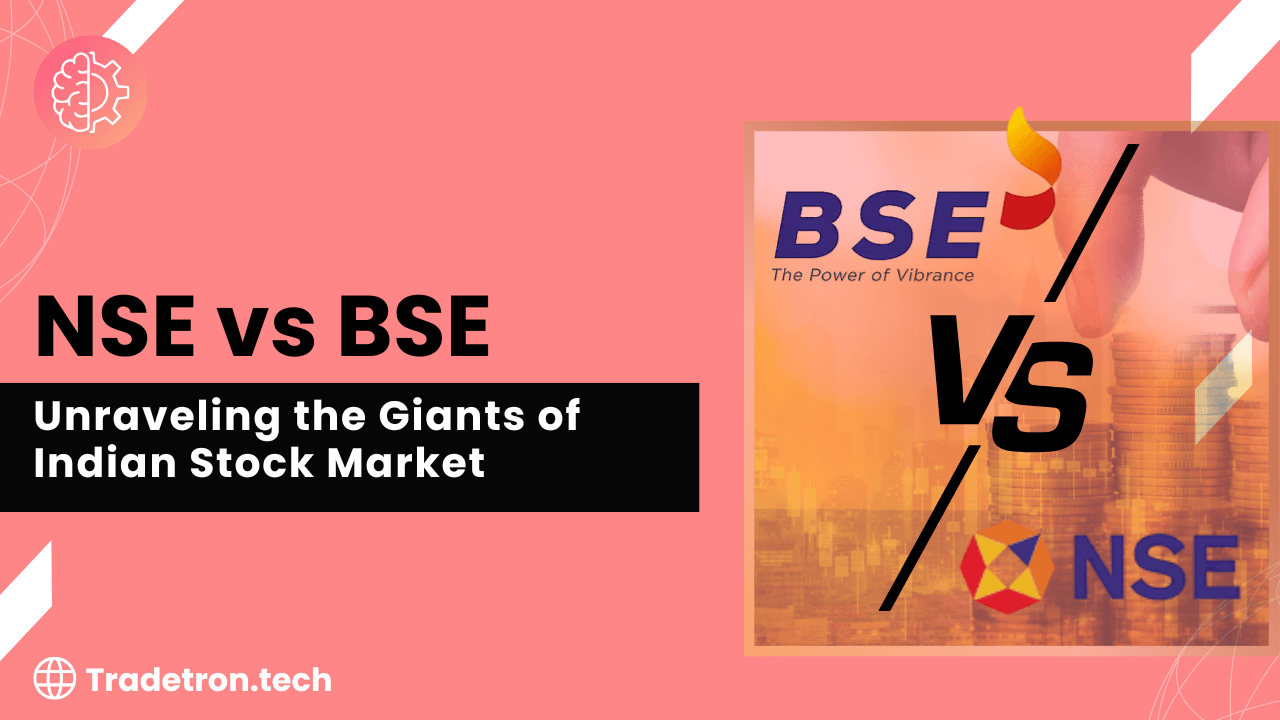
When you step into the world of Indian stock markets, two names invariably dominate the conversation: the National Stock Exchange NSE and the Bombay Stock Exchange (BSE). While both serve as crucial platforms for trading securities, they possess distinct characteristics that shape investor experiences and market dynamics. Understanding these differences is key for anyone looking to navigate the Indian equity landscape.
What's the Intent Behind Your Search?
If you're searching for "difference between NSE and BSE," chances are you're seeking clarity on which exchange is more suitable for your investment goals, or simply aiming to deepen your understanding of India's financial infrastructure. You might be a budding investor, an active trader, or just a curious mind trying to grasp the nuances of the market. This blog post aims to demystify these two powerhouses, helping you make informed decisions and appreciate their unique contributions.
NSE vs. BSE: A Head-to-Head Comparison
Let's break down the key distinctions between these two giants:
1. Establishment and History
- BSE (Bombay Stock Exchange): Established in 1875, BSE holds the prestigious title of being Asia's oldest stock exchange. It has a rich legacy, playing a pivotal role in India's economic growth over more than a century.
- NSE (National Stock Exchange): A relatively newer entrant, NSE was established in 1992 and commenced operations in 1994. It revolutionized Indian trading by introducing a fully electronic, screen-based trading system from its inception, in contrast to BSE's earlier paper-based system.
2. Benchmark Indices
- BSE: Its benchmark index is the S&P BSE Sensex, comprising 30 financially sound and well-established companies. It is often seen as a barometer of the Indian economy.
- NSE: Its flagship index is the Nifty 50, representing the weighted average of 50 of the largest Indian companies listed on the NSE. It is widely tracked by investors and used for derivatives trading.
3. Trading Volume and Liquidity
- NSE: Consistently records significantly higher trading volumes and greater liquidity compared to BSE. This makes it a preferred choice for active traders and institutional investors.
- BSE: While active, BSE generally has lower trading volumes than NSE, sometimes resulting in wider bid-ask spreads.
4. Number of Listed Companies
- BSE: With over 5,000 listed companies, BSE offers a broad spectrum of investment opportunities, especially in small and mid-cap segments.
- NSE: Hosts around 1,600–1,700 listed companies. Its stricter listing norms attract larger, well-established firms.
5. Technology and Trading Mechanism
- NSE: Known for its advanced electronic trading system (NEAT). It was the first Indian exchange to offer a completely dematerialized (paperless) trading environment.
- BSE: Transitioned to electronic trading with its BOLT system in 1995. While modernized, NSE is generally considered more technologically advanced.
6. Investor Profile and Preference
- NSE: Favored by active traders and institutions due to high liquidity and tech efficiency.
- BSE: Appeals to long-term investors and those exploring smaller, potentially high-growth companies.
7. Global Ranking (by Market Capitalization)
- Both exchanges rank among the top globally by market capitalization. Their rankings fluctuate, but they remain significant players attracting foreign investments.
Similarities: What They Have in Common
Despite their differences, NSE and BSE share several similarities:
- Regulatory Oversight: Both are regulated by SEBI, ensuring transparency and investor protection.
- Trading Hours: Both operate from 9:15 AM to 3:30 PM IST, Monday to Friday.
- Asset Classes: Enable trading in equities, derivatives, mutual funds, ETFs, and debt instruments.
- Settlement: Trades are settled electronically through depositories like NSDL and CDSL.
- Dual Listing: Many large companies are listed on both exchanges, allowing buy/sell flexibility and arbitrage opportunities.
Which One to Choose?
The choice depends on your investment strategy:
- NSE: Ideal for high-frequency traders and those focused on derivatives and liquidity.
- BSE: Better suited for long-term investors looking at a wide variety of stocks, including small caps.
Ultimately, both exchanges offer robust and secure trading environments. Many investors leverage both for diversification and flexibility.
Frequently Asked Questions (FAQs)
Q1: What are NSE and BSE?
NSE and BSE are India’s primary stock exchanges for trading securities like equities, derivatives, and bonds.
Q2: Which is older, NSE or BSE?
BSE is the oldest, founded in 1875. NSE came into existence in 1992.
Q3: What are Sensex and Nifty 50?
Sensex is BSE’s index of 30 top companies. Nifty 50 is NSE’s index of 50 large companies.
Q4: Which exchange has more liquidity?
NSE generally offers higher liquidity and trading volume, making it preferable for frequent trading.
Q5: Can I buy on BSE and sell on NSE?
Yes, but only after the stock is credited to your Demat account (T+1 settlement). This can create arbitrage opportunities.



 Made with Superblog
Made with Superblog